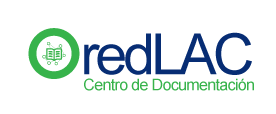| Tipo de ítem | Ubicación actual | Colección | Signatura | Estado | Notas | Fecha de vencimiento | Código de barras |
|---|---|---|---|---|---|---|---|
 Informes
Informes
|
Centro de Documentación - Olade | Documentos Externos | 333.793.2/C6499s (Navegar estantería) | Disponible | Documento a texto completo |
Informe realizado en el marco de la Smart Villages Initiative.
As a result of an active government-led rural electrification programme, 82% of Bolivia’s households (in both urban and rural areas) had access to electricity in 2012. However, 2.5 million people still live without a clean and sustainable energy source and rely on diesel, kerosene, and candles for lighting. The lowest levels of rural electrification in the country are found in the Departments of Beni and Pando, which are isolated and sparsely populated, and where access to rural communities is particularly challenging and expensive. Rural households in the whole country depend largely on biomass as a source of energy and traditional wood burning stoves for cooking, which has important environmental and public health consequences, in particular for women and children. The Smart Villages Initiative organised a workshop on access to, and use of, renewable energy sources for rural communities in Bolivia on April 28, 2016, in La Paz, Bolivia to facilitate analysis and exchange of experiences of electrification of off-grid rural communities in Bolivia. The workshop brought together representatives of the public sector, international, and regional organisations, NGOs, academia and the private sector institutions.






No hay comentarios en este titulo.